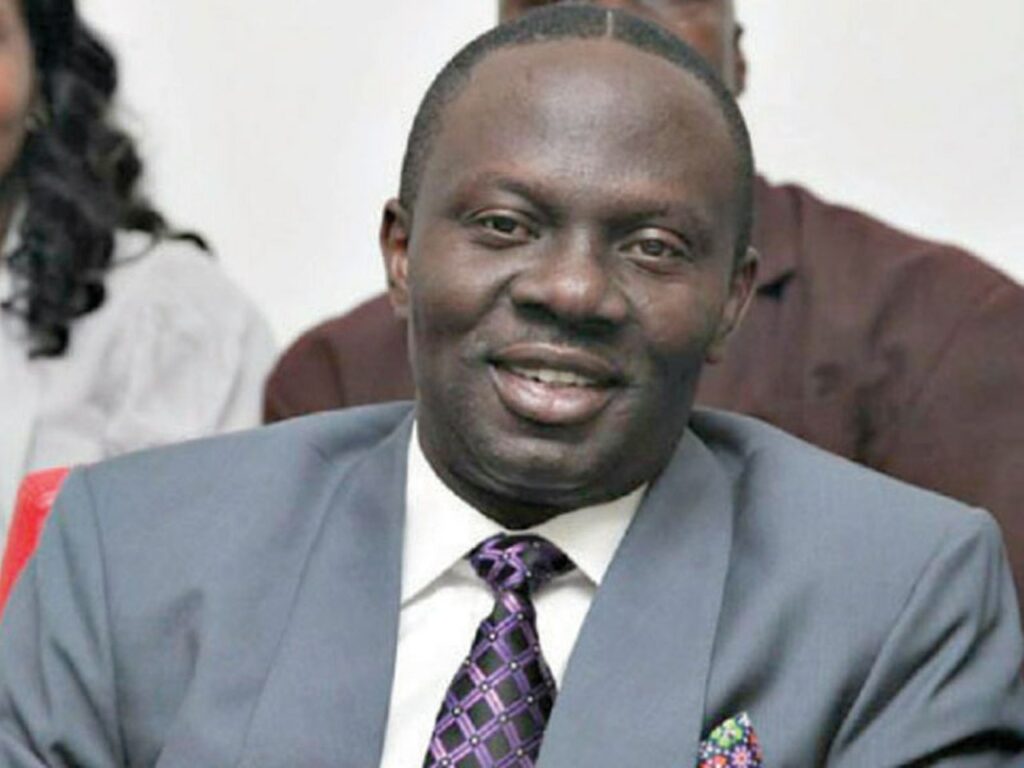 We all remember “Waiting for Godot”, an absurd but unforgettable play by Samuel Beckett, in which two characters, Vladimir and Estragon, wait endlessly and in vain for the arrival of someone named Godot. Having read and written so many articles on the virtues and vices of the long wait for President Buhari to make his key political appointments, it’s not surprising that the Beckett play comes into mind. No one is suggesting that it’s absurd to wait so long for key appointments to be made. Maybe the absurdity is in the neurosis affecting the over 5,000 people waiting and praying for appointments into the Buhari Administration. If some of the appointees in waiting head for mental breakdown from the long wait and above all from not knowing whether their names are on the list or not, the implication might well be that they don’t have the mettle to serve in the government. My own anguish is not about appointments but about the policy direction of the Government.
We all remember “Waiting for Godot”, an absurd but unforgettable play by Samuel Beckett, in which two characters, Vladimir and Estragon, wait endlessly and in vain for the arrival of someone named Godot. Having read and written so many articles on the virtues and vices of the long wait for President Buhari to make his key political appointments, it’s not surprising that the Beckett play comes into mind. No one is suggesting that it’s absurd to wait so long for key appointments to be made. Maybe the absurdity is in the neurosis affecting the over 5,000 people waiting and praying for appointments into the Buhari Administration. If some of the appointees in waiting head for mental breakdown from the long wait and above all from not knowing whether their names are on the list or not, the implication might well be that they don’t have the mettle to serve in the government. My own anguish is not about appointments but about the policy direction of the Government.
Just before the inauguration, the APC Policy Directorate held a major conference in preparation to execute a strategy of “hitting the ground running” as soon as their parry takes over power. The buzz at the conference was that major policy decisions, especially politically difficult ones must be made immediately and quick wins must be obtained by the end of the first hundred days in office. The idea was that by riding on the crest of newly acquired legitimacy and popularity, significant gains could be made before expected criticisms begin to affect the credibility of the government. The underlying assumption is that all new regimes coming into power in a context of very high expectation start losing their popularity on assuming office even if for the sole reason that people’s expectations are unreasonably high. President Buhari is certainly coming into office within the context of very high expectations. The reality about the man Buhari is that he sticks to his convictions rather what others might expect of him.
One key issue at the conference was that was presented almost, as a “consensus” was an immediate cancellation of fuel subsidy before resistance to such an unpopular move builds up. I certainly had the impression from the conference but also from the press that that fuel subsidy would be abolished within the first week of the Buhari Administration. It did not happen and in general things went quiet as the whole country waited for political appointments and policy announcements that never came. It took almost two months before we started hearing that the abolition of fuel subsidy would not happen, at least not in the total and immediate manner we had been led to believe. For thirty years, I had stubbornly campaigned against removal of fuel subsidy until a few months ago when I caved in to the idea that it was impossible to control corruption in the fuel subsidy so we might as well cancel it and use the money for other social projects that would benefit the masses. Just to sow confusion in my mind and confuse me, President Buhari appears to be sticking with my old argument that the masses would suffer more from the removal of fuel subsidy so the way forward is not continue but to control the corruption. My concern however is that there is no formal policy position on the issue to engage with. We have to rely on a few sentences with hints and innuendoes to read the policy framework of President Buhari on fuel subsidy.
Of course the larger issue is that there is no economic policy team to spell out the direction of the government so that the debate can take off. There is a media team that makes a lot of announcements and pronouncements on behalf of the President but the poor guys have precious little to say on policy for the simple reason that they have not yet been told what it is. On Friday, the President announced at the National Defence College that the military has been directed to start producing arms for Nigeria. It’s good talk but it would be useful to know what the statement means. Nigeria has no machine tools industry. Way back in 1971, the Nigerian Steal Development Authority was established to set us along the path of an iron and steal industry and Ajaokuta was established in 1975 and programmed to go into production in 1981. It never happened. Does producing our arms mean assembling or actually developing a machine tools industry? It would be useful to have a policy team that could speak a bit more to some of these bits of information we are being fed.
We have also been told that next year’s budget would show a significant increase in its capital allocation which is excellent news. Meanwhile, the market for petroleum is not improving and fuel subsidy might not be cancelled. At the same time, the war effort would continue to be a huge burden on the economy. In this context, it would be useful to know where the money would be coming from. The reality of our economy is that very difficult choices would need to be made in terms of expenditure and there would be losers and gainers in the short and medium term. It is therefore important that Government articulates the economic policy arguments so that citizens can respond in terms of their criticisms and preferences. Those of us who devote ourselves to engaging policy are facing very frustrating times because we do not have a clear view of what is being proposed. Over and above the issue of political appointments, engaging the policy debate is very crucial. Of course we have had access to the programme and policy framework of the ruling APC. It is however a bold and well thought out campaign framework that made more claims that could be met in this difficult economic climate. Now that power is in the bag, we need to know what specific policy options would be prioritised. I am aware that we have been told to wait until September to know what is going on. The broad framework of the budget for next year has to be prepared by September to meet the timelines of the National Assembly and waiting for Baba Buhari is beginning to pose challenges fir effective take-off of the CHANGE we have been promised.



